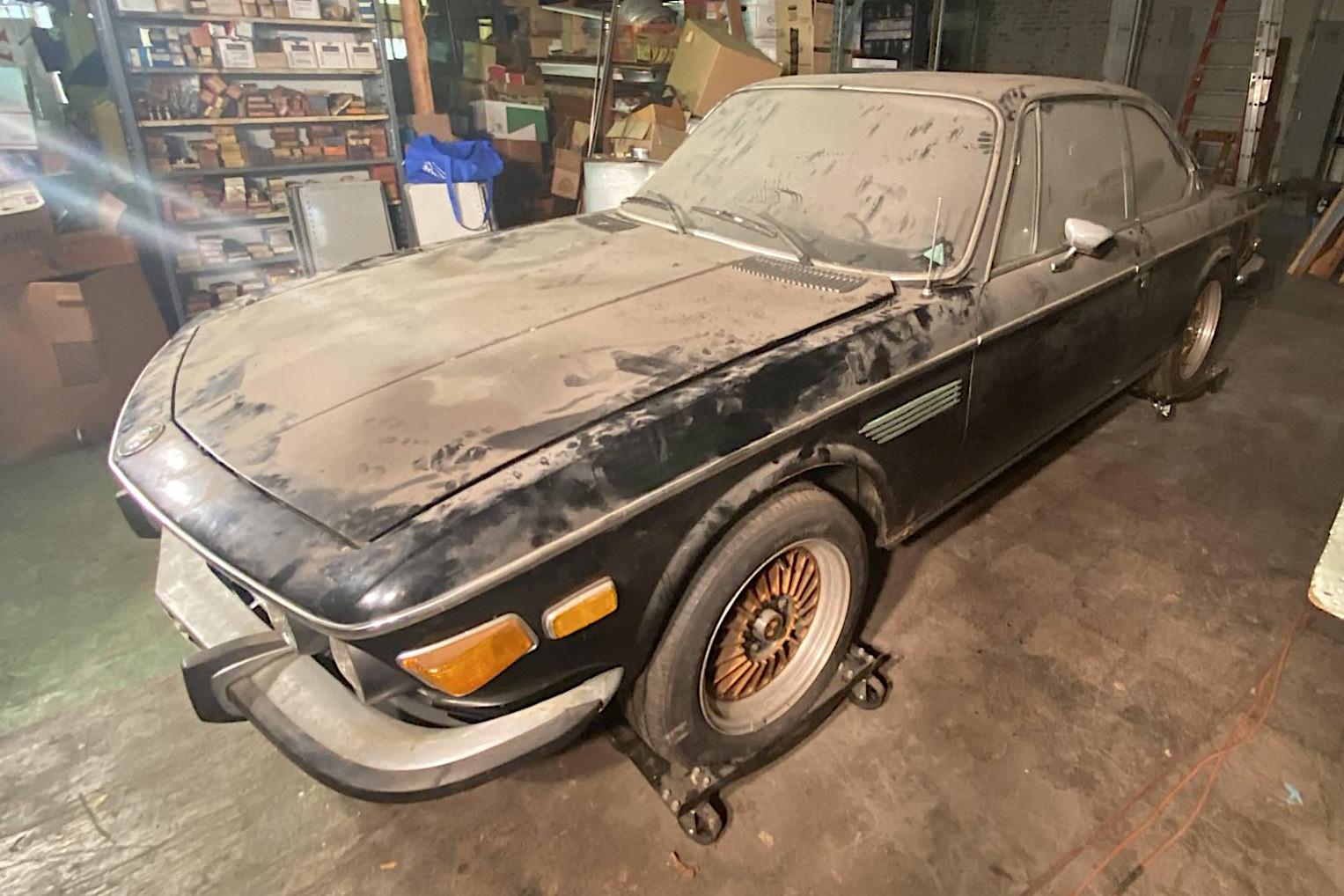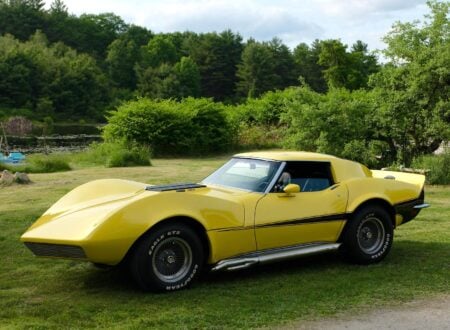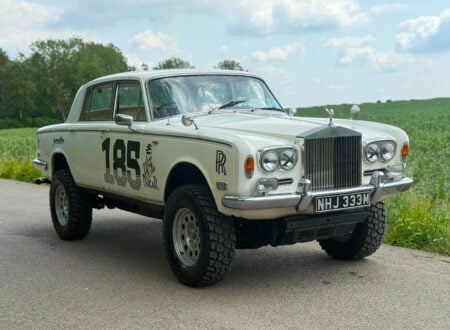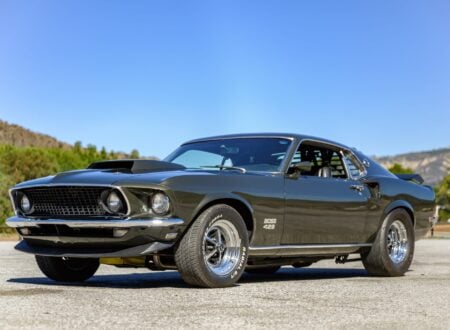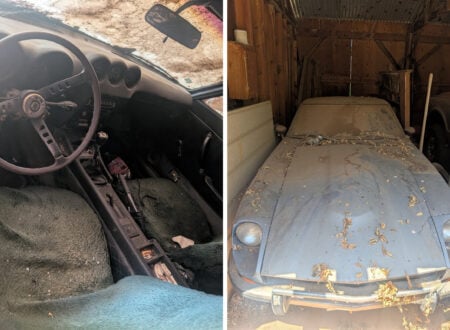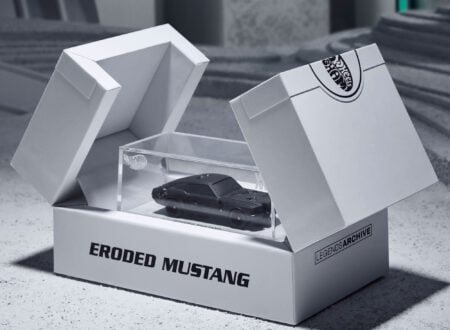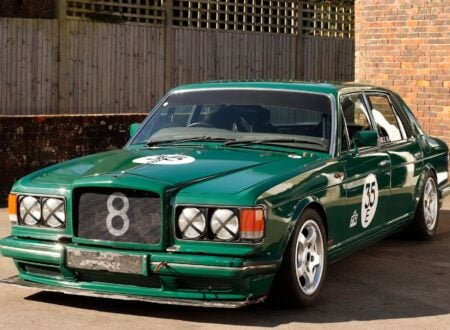This 1972 BMW 3.0 CS is a desirable 4-speed manual example that has been sitting undisturbed for 24 years in storage, waiting for a restoration. The car was bought over two decades ago as a non-running project, and it’s now being offered for sale in the hopes that someone will give it the rebuild it deserves.
When it was ordered new in the early 1970s this car was optioned with air-conditioning, a sunroof, black paintwork, a tan interior, and the 4-speed manual gearbox. It now has 86,000 miles on the odometer and it comes with a spare engine and another set of wheels.
Fast Facts – The BMW 3.0 CS
- The BMW 3.0 CS is a member of the BMW E9 series, a range of sporting GT cars that were produced by the German automaker between 1968 and 1975, they are now highly sought-after among car enthusiasts.
- The E9 family was designed to be more upscale and luxurious than previous models, and were built on a new platform that was longer and wider, giving them a sleek, low-slung profile.
- The E9 series was known for its advanced engineering (by the standards of the time), including fully independent front and rear suspension, four wheel disc brakes (rear drums on some early models), and a number of other features that were designed to appeal to the luxury buyer, like power windows, air conditioning, and a heated rear window.
- Under the hood, the E9 series was powered by a range of straight-six engines that were known for their smooth power delivery, including the 2.8 liter straight-six engine in the BMW 2800 CS, the 3.0 liter engine in the BMW 3.0 CS, and the fuel-injected 3.0 liter engine in the high-end BMW 3.0 CSi.
- One of the most iconic E9 series cars is the BMW 3.0 CSL “Batmobile,” which was designed as a homologation special for BMW’s racing program and built with lightweight materials including aluminum outer body panels and Plexiglas windows. It was powered by a highly-tuned engine and featured a number of wind tunnel developed aerodynamic enhancements.
The Arrival Of The BMW E9
When the BMW E9 series first arrived in 1968 as the BMW 2800 CS model it was intended as a new luxury GT car to rival the best that marques like Porsche could muster. The E9 was based on the earlier Neue Klasse BMW 2000 C and 2000 CS models but featured a slew of upgrades to improve both looks and performance.
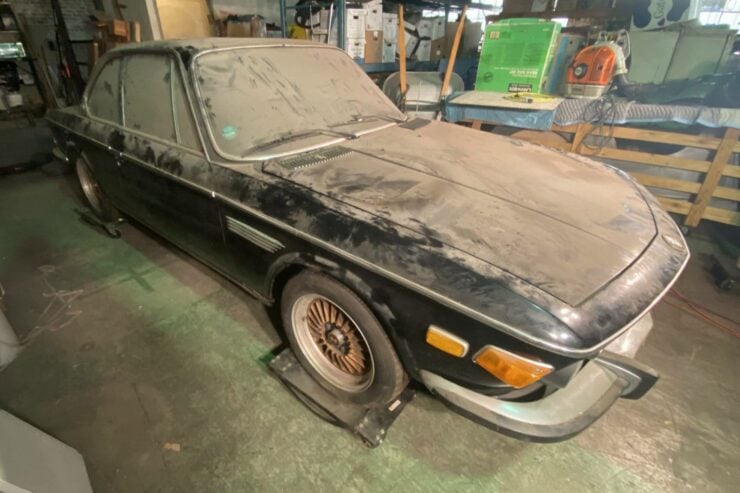

The styling was updated by lead designer Wilhelm Hofmeister, for whom the BMW “Hofmeister Kink” was named. The front end of the car was lengthened appreciably to ensure the newly developed BMW M30 inline-six engine would fit, and the styling was given a much-needed revamp resulting in a decidedly shark-like side profile.
The first production car in the E9 series was the 2800 CS, it was powered by the 2.8 liter version of the M30 straight-six which produced 168 hp at 6,000 rpm. Like the other cars that would follow in the series, the 2800 CS could be ordered with either a 4-speed manual or a 3-speed automatic transmission, and options for things like air-conditioning allowed buyers to add as much luxury refinement as they wanted.
The BMW 3.0 CS
The next car in the series would be the 3.0 CS and 3.0 CSi which appeared in 1971, the M30 engine now had a displacement of 3.0 liters and it could be ordered in either carburetor-form with the 3.0 CS or fuel injected form with the 3.0 CSi.
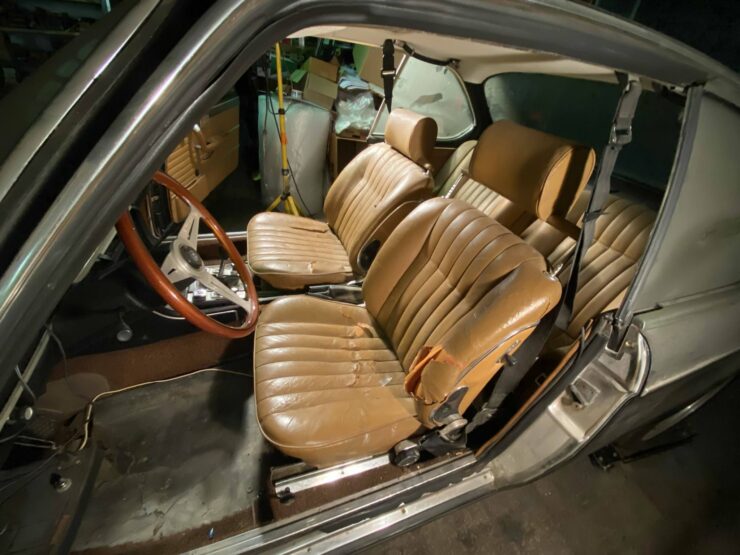

There were a few key differences between the two cars, mostly confined to the engine bay, with the 3.0 CS having a compression ratio of 9.0:1 and a power output figure of 180 hp at 6,000 rpm, and the 3.0 CSi having a compression ratio of 9.5:1 (thanks to the efficient Bosch D-Jetronic electronic fuel injection), which produced 200 hp at 5,500 rpm.
The BMW 3.0 CS is now seen by many as a good balance between the far rarer and more expensive 3.0 CSL and the less powerful, earlier BMW 2800 CS.
The BMW 3.0 CSL
The next car in the series would become by far the most famous, it was officially named the BMW 3.0 CSL however it was quickly nicknamed the “Batmobile” for the wild wind-tunnel developed aerodynamic bodykit.
The 3.0 CSL was built solely as a homologation special to ensure the car would be eligible to race in the hotly contested European Touring Car Championship. BMW wanted to take their new sports coupe racing against the best on the Continent and win – in order to establish the sporting credentials of the E9.
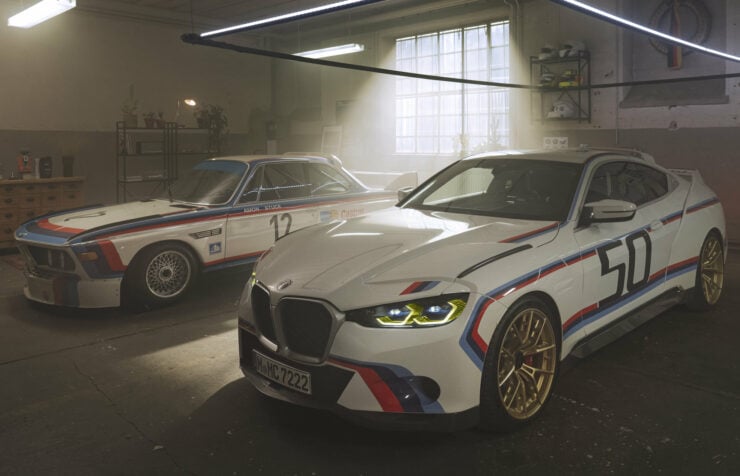

The car far surpassed even their wildest hopes, winning the European Touring Car Championship drivers’ title six times starting in 1973 and then running from 1975 to 1979 back-to-back. Just 1,265 3.0 CSLs were ever made and today the surviving examples are worth hefty sums.
The Oft-Forgotten BMW 2.5 CS
One member of the E9 family that’s often overlooked or forgotten about entirely is the 2.5 CS. This car was developed quickly in response to the 1973 Oil Crisis that had seen global demand for sports cars cratering due to high gas prices.
The BMW 2.5 CS was made more affordable than its stablemates, and it was powered by a smaller, detuned version of the M30 straight-six with a displacement of 2.5 liters offering power output of 150 bhp at 6,000 rpm. Just 874 were made in total between 1974 and 1975.
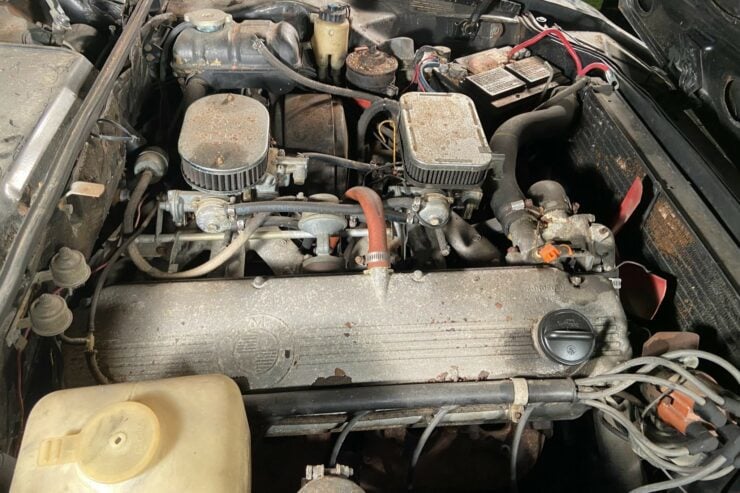

In 1976 the BMW E9 series would be replaced by the new BMW 6 Series (the E24), it was a larger, heavier car that featured styling that was clearly very much based on that of its predecessor. Today, original E9s demand a significant price premium on par with well-sorted Porsche 911s of the same era and oftentimes more.
The 1972 BMW 3.0CS Shown Here
The car you see here has been patiently waiting for a restoration for over 24 years and counting. As explained earlier in the article, it was bought two decades ago by its current owner as a non-running project car.
Although it isn’t stated in the listing it’s likely that they intended to restore the car or at least get it running and serviceable again.
Life can sometimes get in the way of projects like this, and as a result this car has been sitting in storage, well-preserved since the late 1990s when Bill Clinton was the President, a TV show called The Sopranos debuted on HBO, and Michael Jordan announced his second retirement from the NBA.
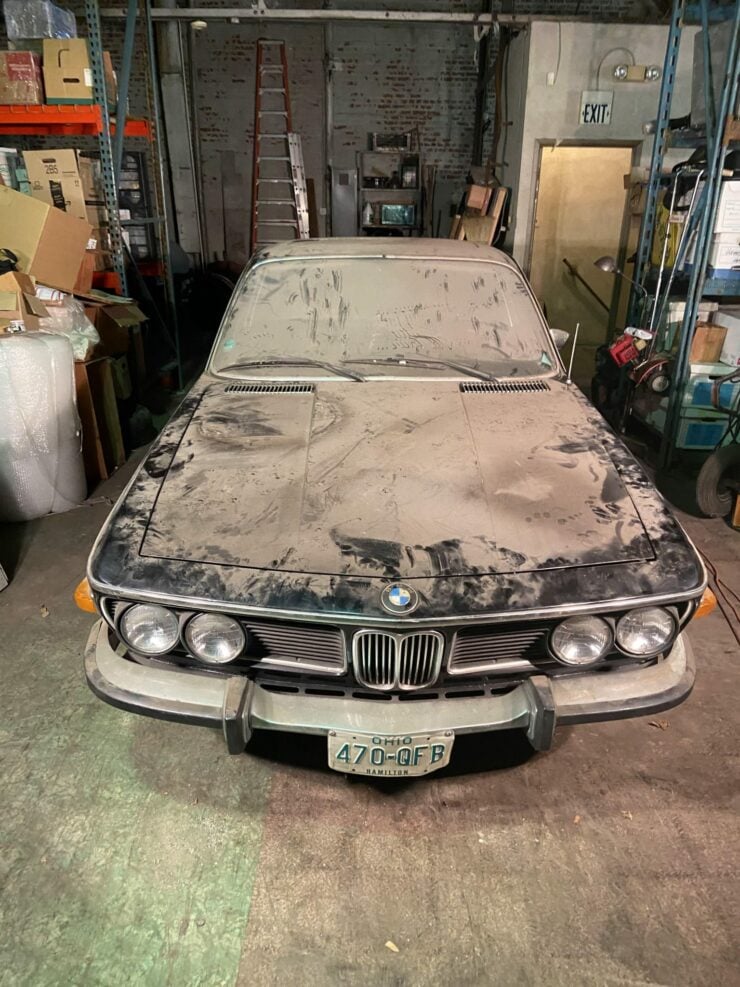

When it was ordered new back in the early 1970s this 3.0 CS was optioned with black paintwork and a tan leather interior, it also has a sunroof, air-conditioning, and importantly for enthusiast drivers, it has the 4-speed manual gearbox.
Exactly what caused the car to stop running isn’t known, however it does now come with a spare engine and a set of additional wheels – in case the gold aftermarket multi-piece wheels it’s currently wearing aren’t to the new buyer’s taste.
The car is now being offered for sale out of Cincinnati, Ohio on Bring a Trailer. If you’d like to read more about it or register to bid you can visit the listing here.
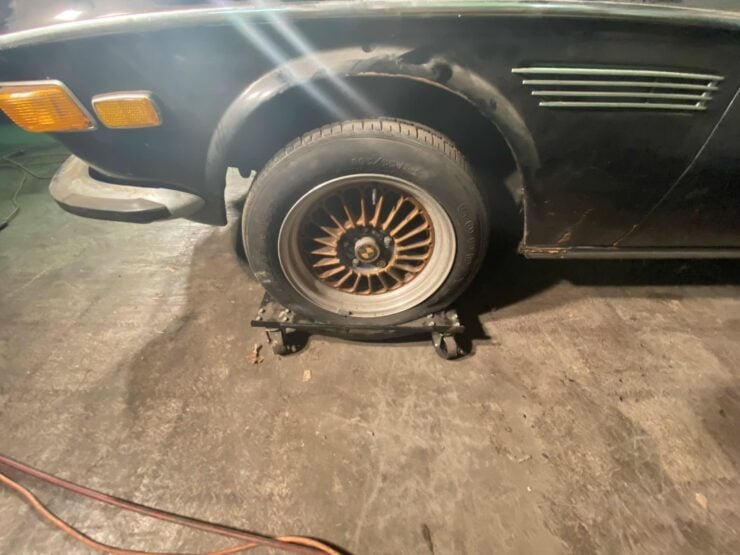
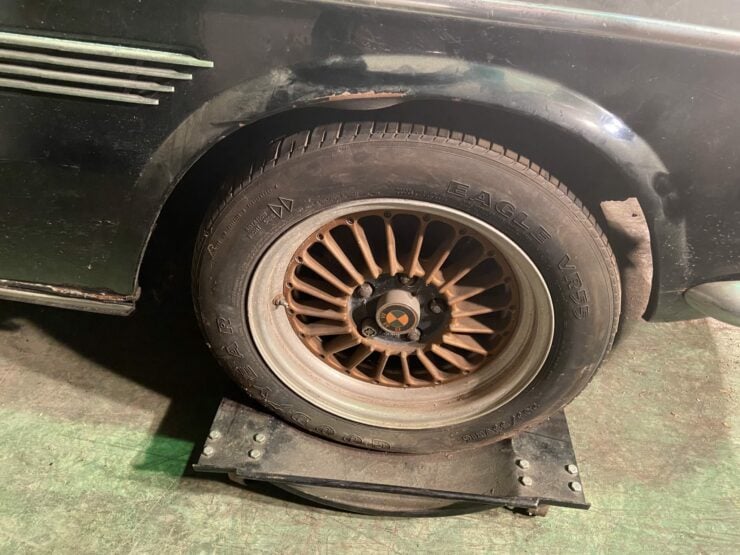
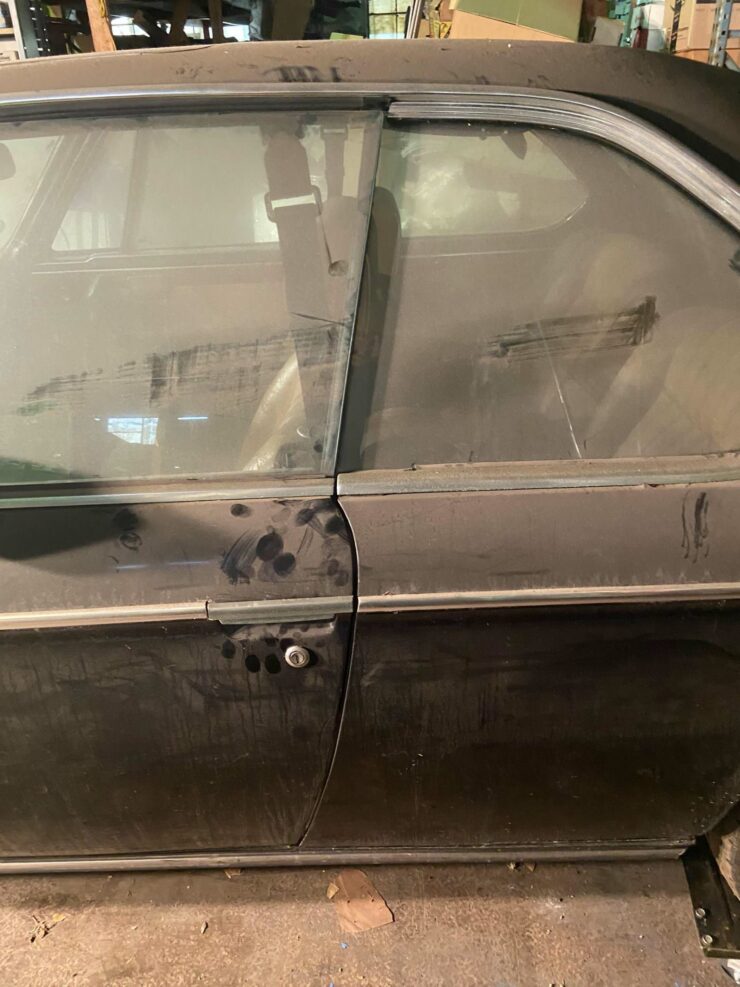
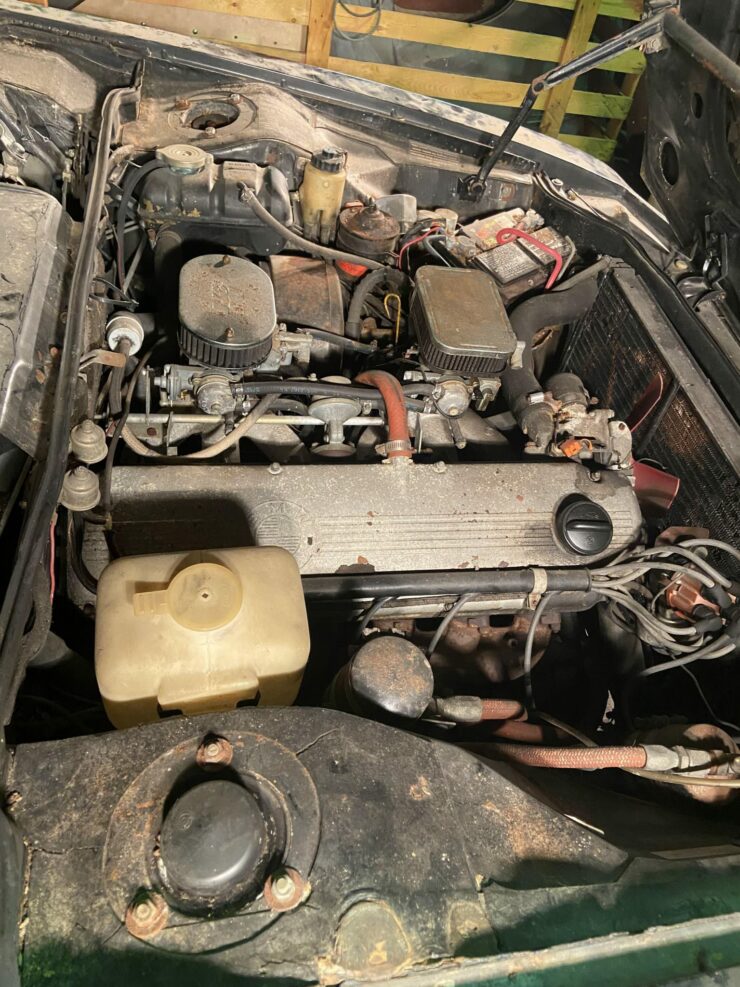
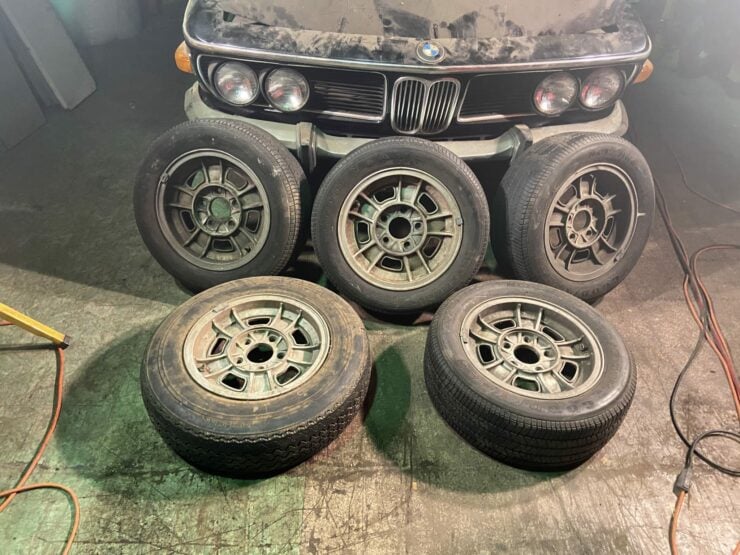
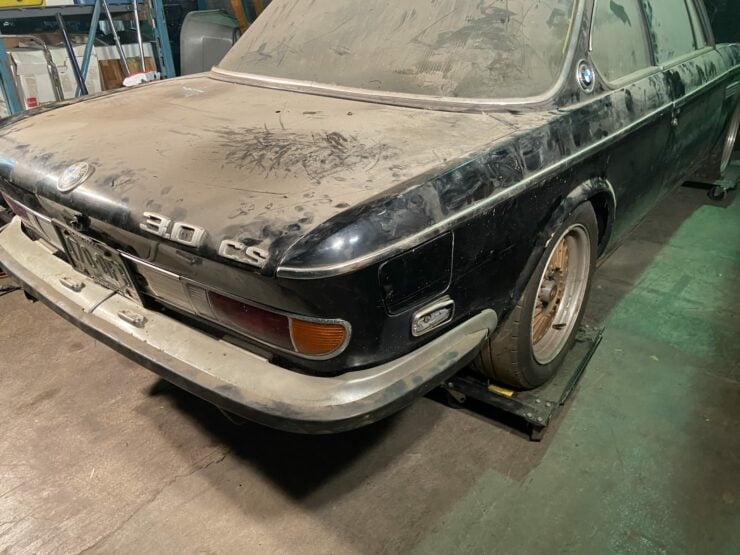
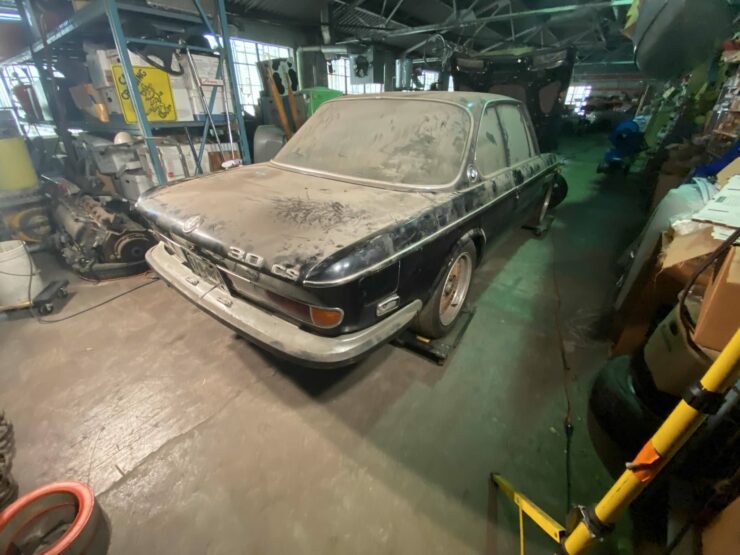
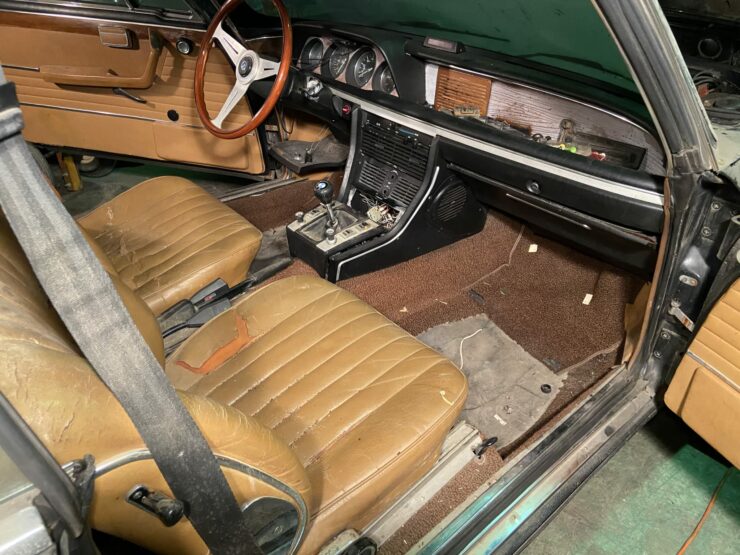
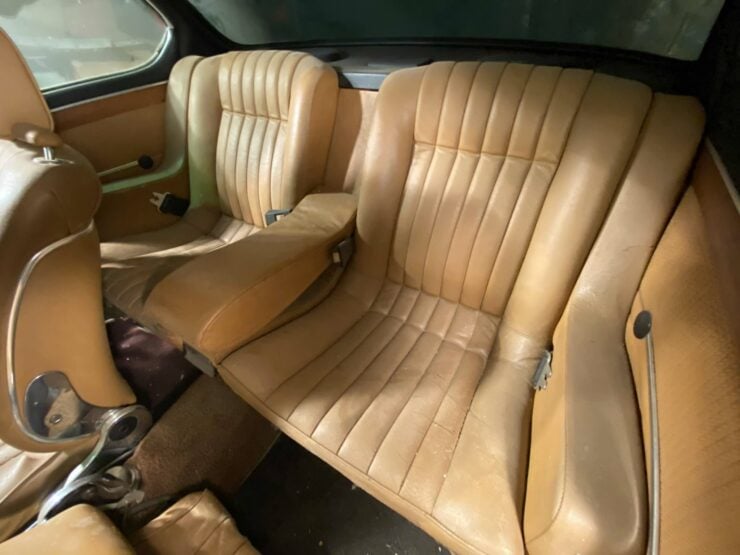
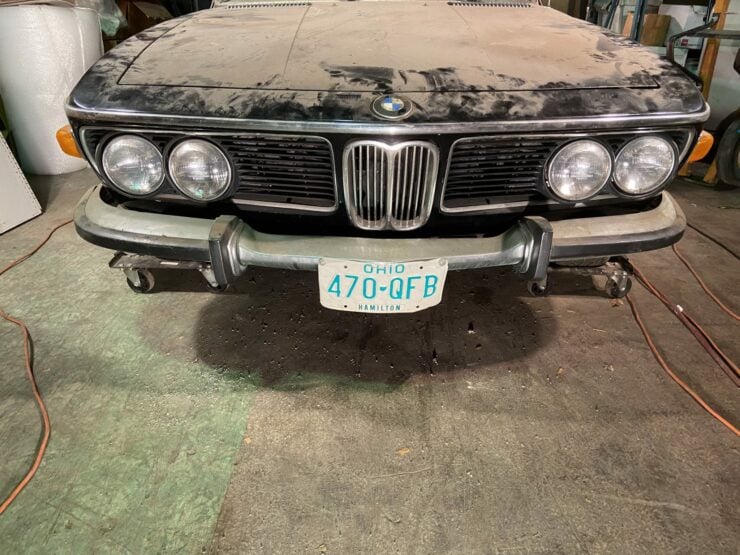
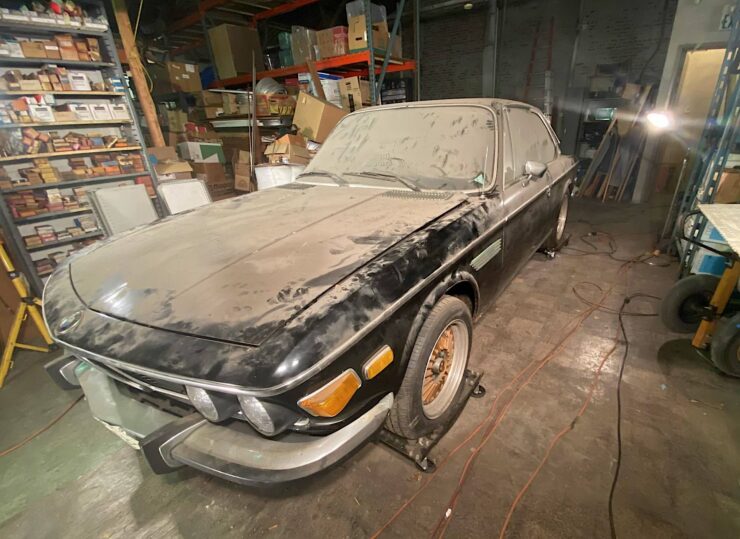
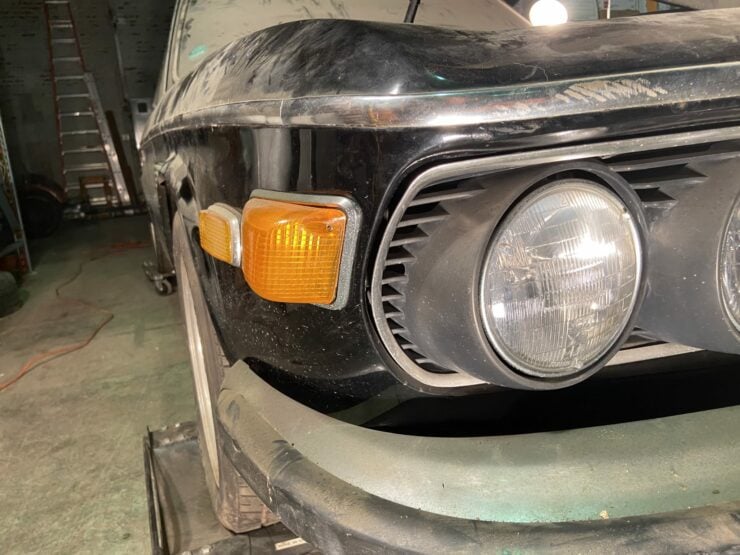
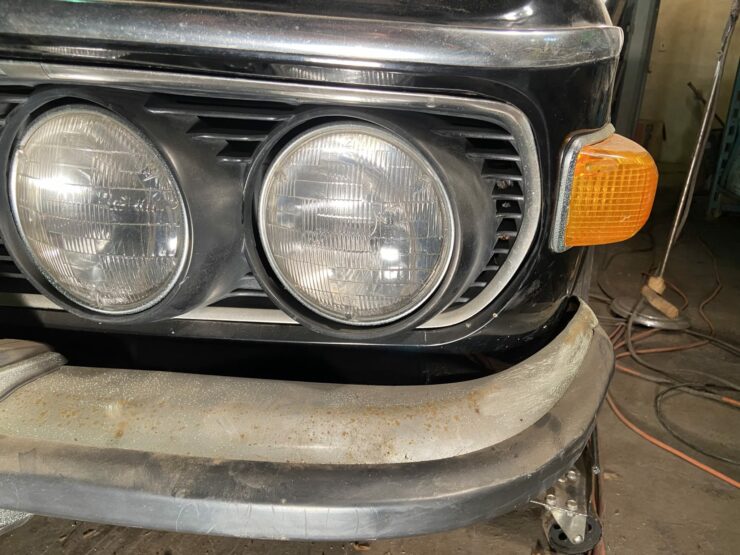
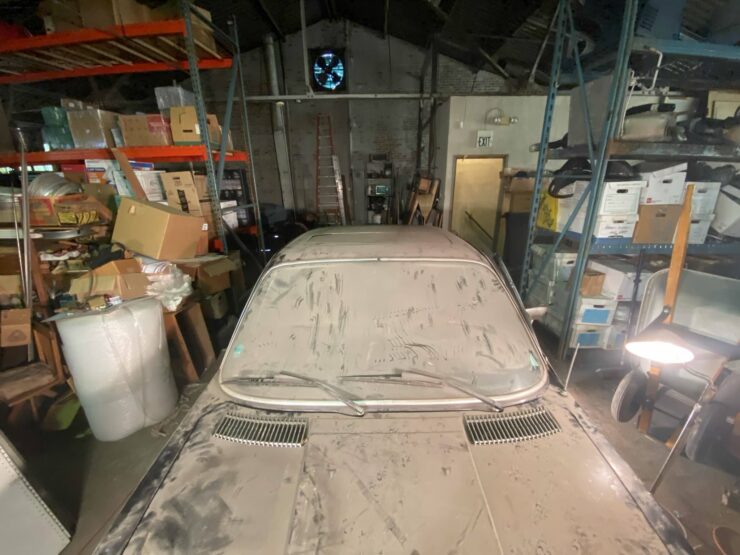
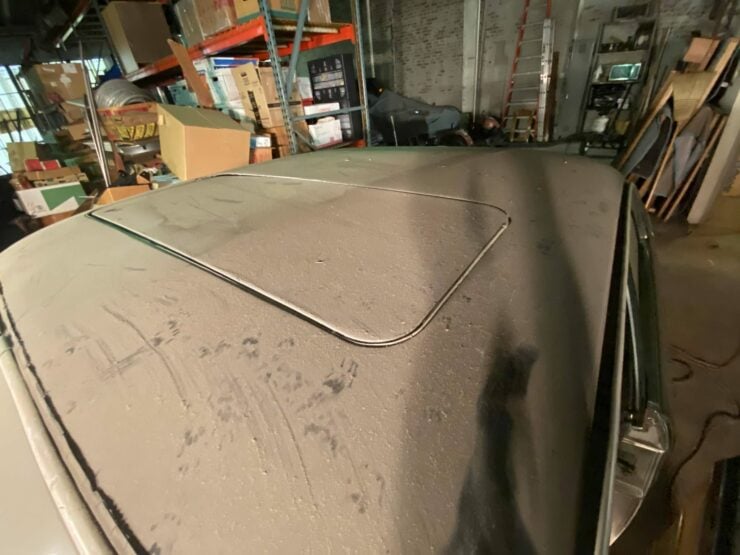
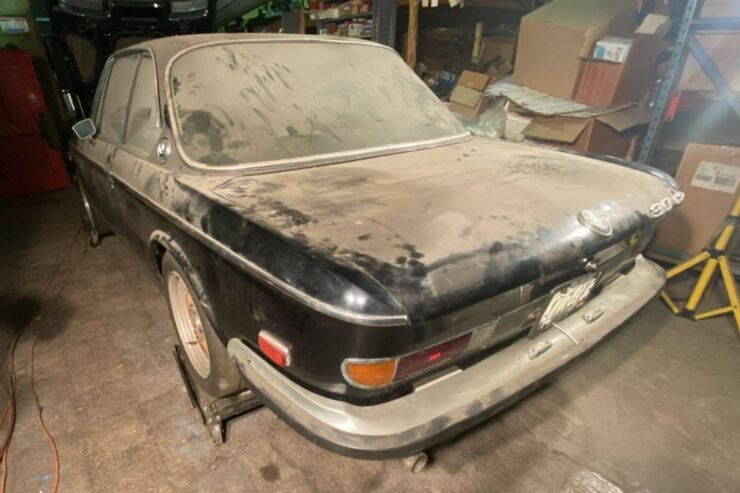

Images courtesy of Bring a Trailer

